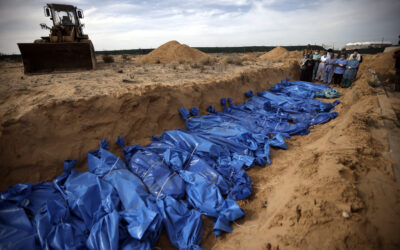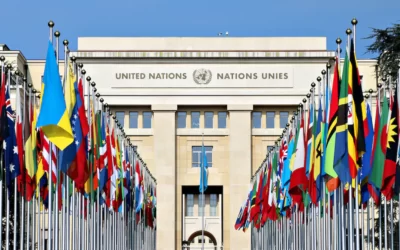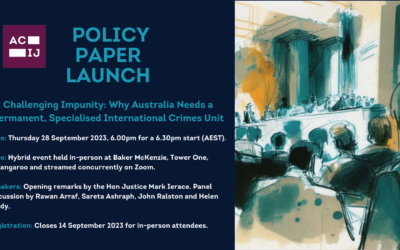Permanent, Specialised International Crimes Unit
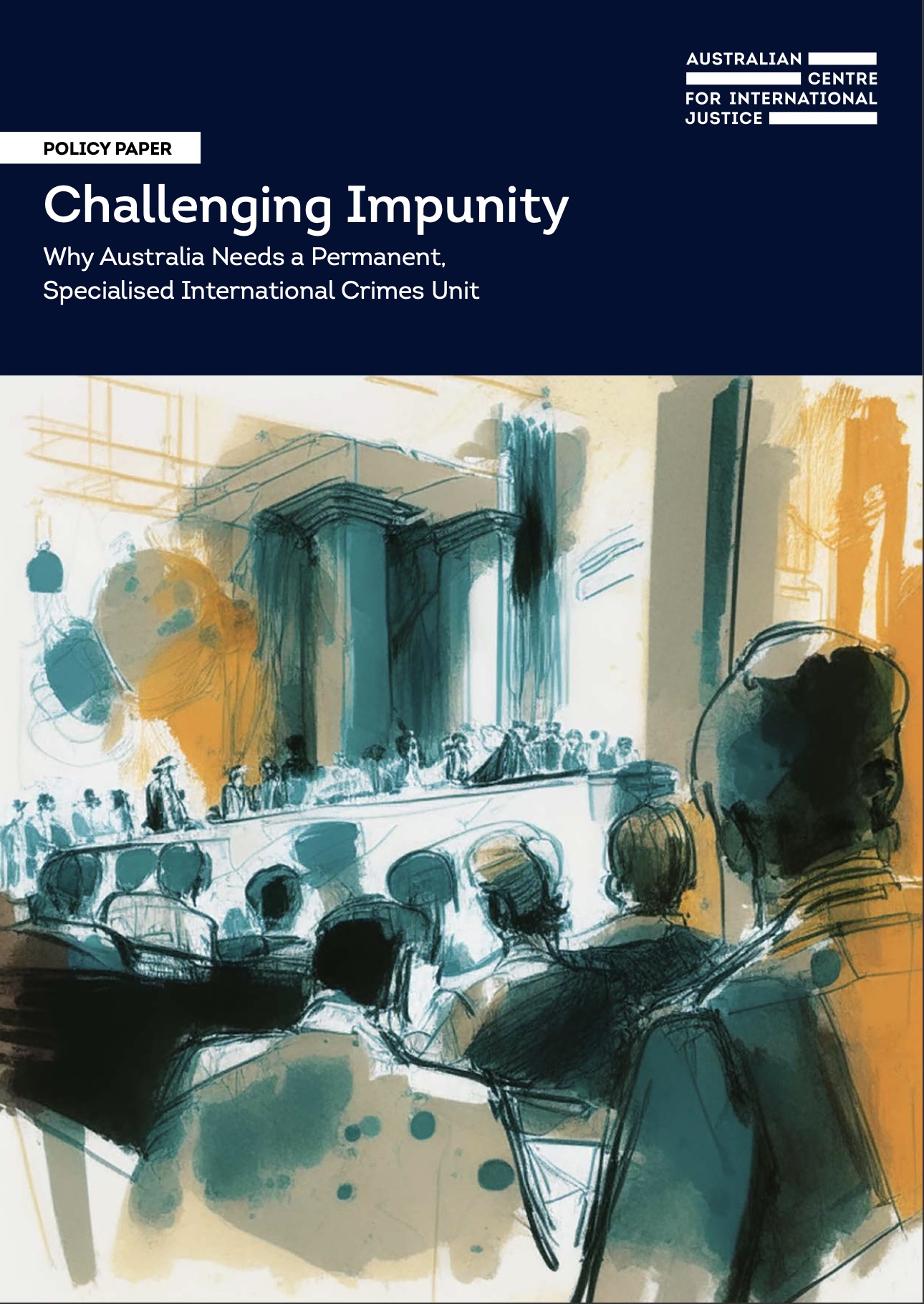
Our theory of change recognises that structural and institutional reform in Australia’s investigative and prosecutorial capacity is necessary to advance and open avenues for justice to survivor communities around the world. Australia lacks the necessary institutional mechanism to investigate atrocity crimes effectively. The Australian Federal Police, being the agency assigned to investigate and refer for prosecutions, allegations which amount to torture, war crimes, crimes against humanity, and genocide, is under-resourced, under-staffed and lacks the specialist skills required to investigate these crimes. Past referrals were not taken seriously or investigated with rigour. In addition, there have been only limited allegations, and investigations and minimal international coordination of strategy.
Policy Paper – Challenging Impunity: Why Australia Needs a Permanent, Specialised International Crimes Unit
In September 2023 we published our Policy Paper, titled Challenging Impunity: Why Australia Needs a Permanent, Specialised International Crimes Unit which includes detailed research and a series of recommendations to the Australian government on the need to establish an investigative international crimes unit.
The paper explores the rise in domestic accountability processes for atrocity crimes overseas, and outlines Australia’s chequered history of international crimes investigations. Drawing on research and experience from overseas jurisdictions, the paper advocates for the creation of a permanent, specialised international crimes unit in Australia, and outlines recommendations for the establishment of an effective unit.
Launch Event
On 28 September 2023, we officially launched our policy paper at the offices of Baker Mckenzie at Barangaroo in Sydney, Australia, unceded land of the Gadigal. We were delighted to be joined by more than 140 attendees in-person and online, from all around the world, testament to the widespread interest in understanding and discussing the ways that Australia can improve its ability to meaningfully address impunity for atrocity crimes.
The event began with a Welcome to Country by Raymond Weatherall, representative from the Metropolitan Local Aboriginal Land Council. Raymond spoke about his life and family, growing up on Gadigal land, and the importance of accountability in international law, particularly given the genocide suffered by Aboriginal and Torres Strait Islander peoples in Australia and the need for accountability.
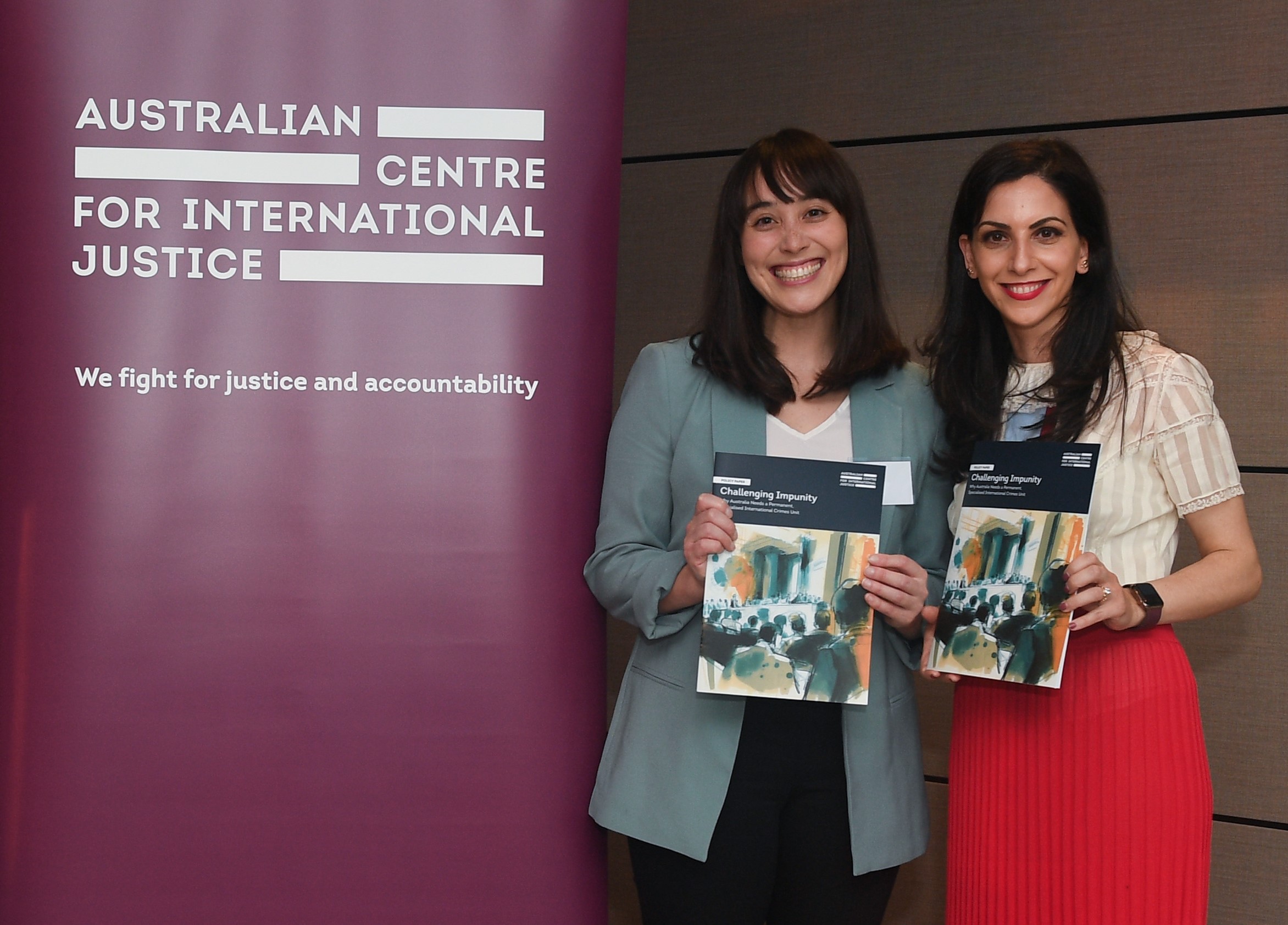
Melissa Chen, Senior Lawyer at the Australian Centre for International Justice, provided an introductory overview of the policy paper. Melissa noted the continual rise in the number of national investigations and prosecutions for atrocity crimes, before shining a spotlight on Australia, which has the legal framework to support such investigations and prosecutions but an inadequate institutional capacity, political willingness and approach. Melissa outlined the paper’s eight key recommendations, highlighting the crucial takeaway that the Australian government can demonstrate its willingness to meaningfully investigate and prosecute international crimes through the establishment of a permanent, specialised unit which could finally create tangible accountability pathways for victims and survivors of atrocity crimes within Australia and our region.
Justice Mark Ierace officially launched the policy paper with his launch address, beginning by noting that he trusted the paper would be a breakthrough in the quest for Australia to play its part in the international effort to end impunity for war crimes, crimes against humanity, genocide and torture, as part of a prolonged journey for reform.
After outlining the history of atrocity crimes investigations, prosecutions and court cases in Australia and overseas, and Australia’s status as a migrant country, Justice Ierace stated that we need to ensure that Australia can finally step up and join the ranks of those States in the international community that are prepared to act, and that the policy paper outlines the roadmap for Australia to do so.
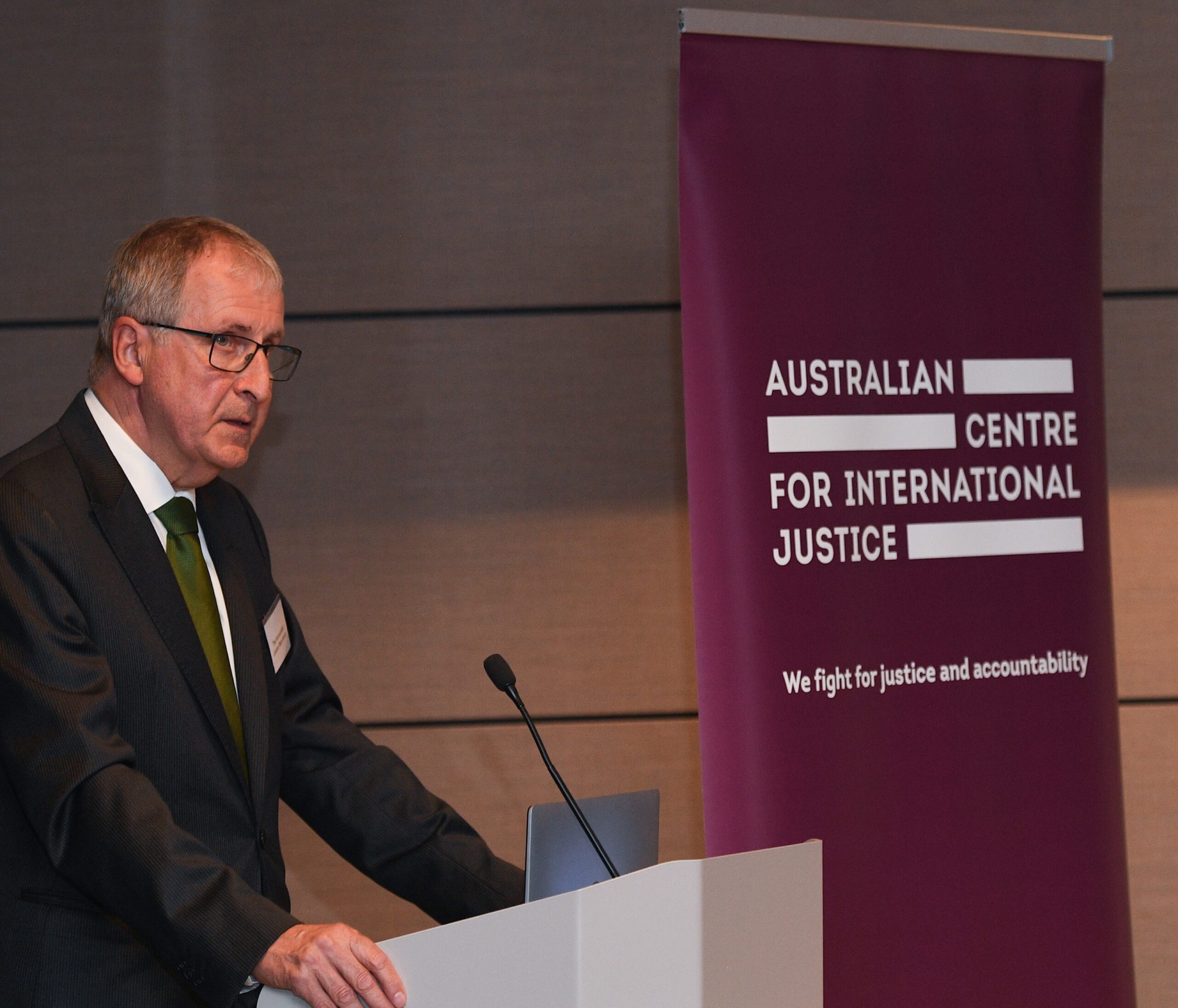
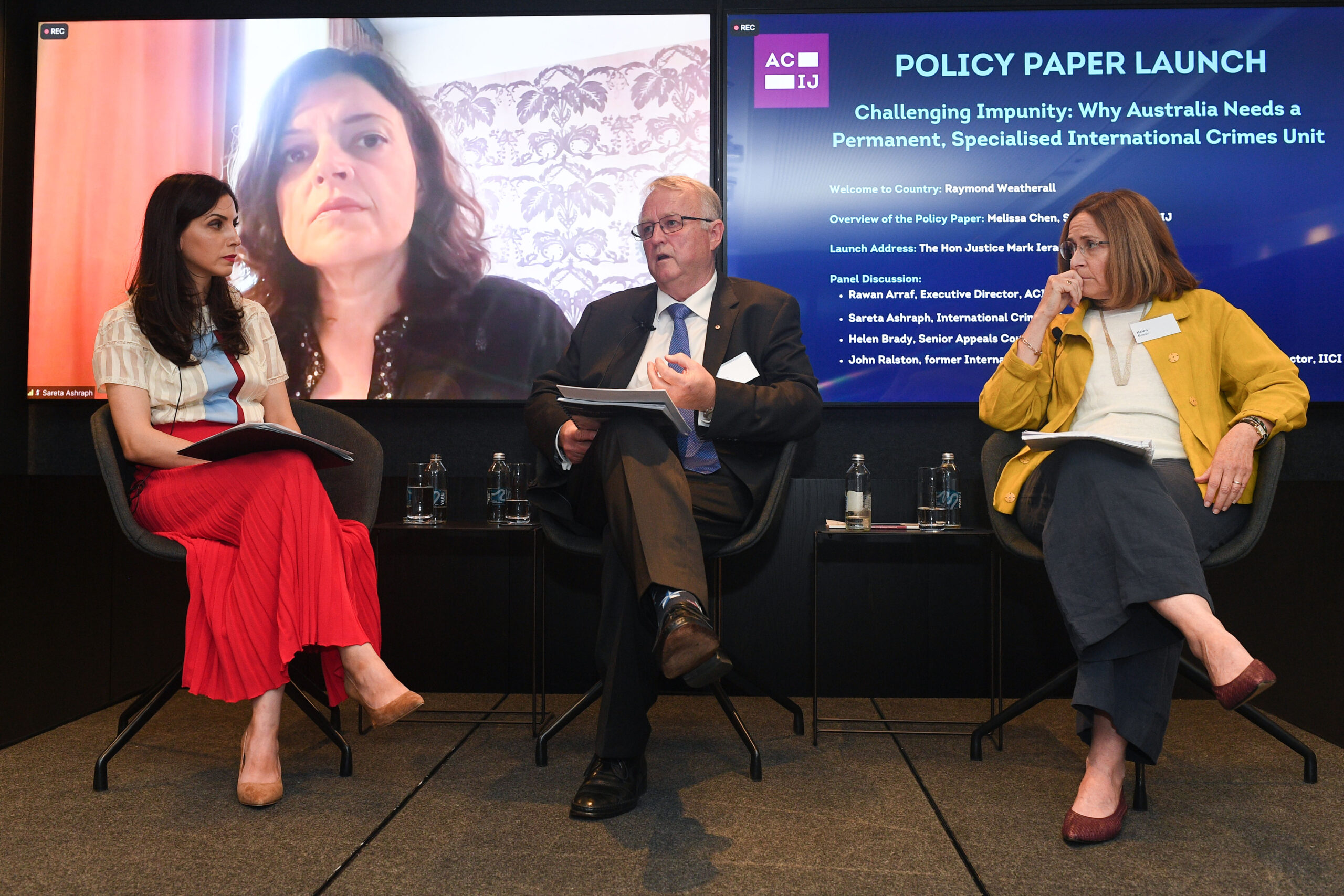
Sareta spoke about her work with international justice mechanisms and the shift in in the focus of international criminal justice, with the importance of domestic investigations and domestic prosecutions deepening tremendously, through bringing perpetrators to account and engaging in outreach to survivors and victims, which is key to delivering accountability. Sareta explained that countries with specialised units often benefit from the most cutting edge approaches to international crimes investigation, such as gender competency and other intersectional approaches that focus on crimes against marginalised groups who are more likely to be rendered less visible. She also noted that independent, specialised units are more likely to develop outreach to survivor communities and diaspora communities, creating a pathway and a bridge of trust between the unit and these communities, creating an environment where communities know where to go for assistance and provide the spark of justice through tips from the community.
John described the challenges of working as an international crimes investigator for the Special Investigations Unit in the 1990s, and the robust problem solving skills required to deal with the complexities of investigating crimes across international borders. John also spoke on the necessity of multidisciplinary expertise in international crimes investigations in Australia and international tribunals, including the International Criminal Tribunal for the former Yugoslavia, and the building of relationships and cooperative networks as a second, vital layer underlying formal state-to-state mutual legal assistance agreements. John detailed the major problems of a reliance on ad hoc units, being time lag between when the offences occurred and when these units are set up, and a lack of expertise or inability to retain this expertise. He explained that while Australian Federal Police (‘AFP’) investigators are some of the best in the world, there are concerns about the AFP’s management of international justice issues, referring to the clumsy and inaccurate attempt on the AFP’s website to summarise the law regarding international crimes. John also noted the importance of civil society in reaching out to affected communities, as well as initiating investigations and prosecutions of international crimes.
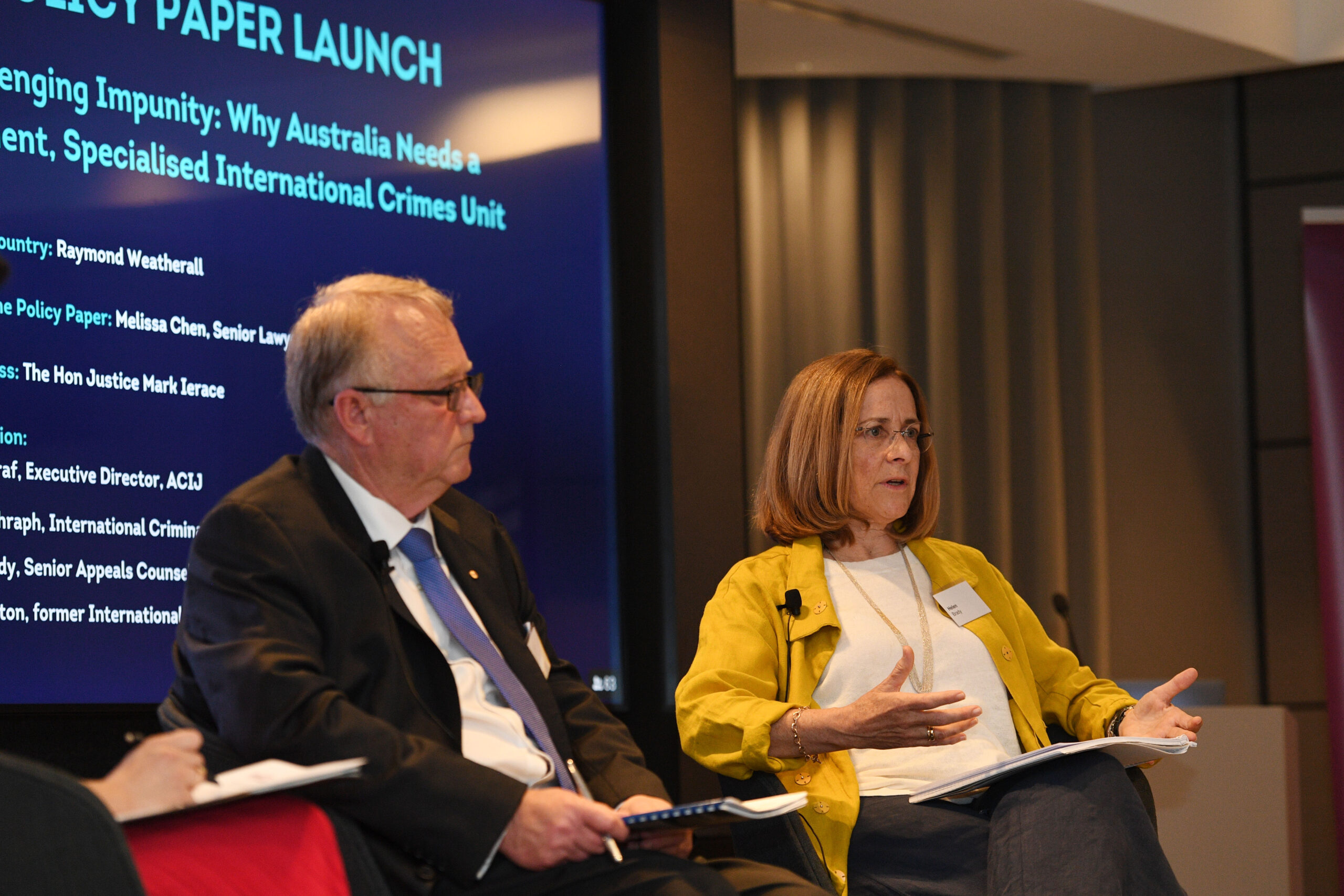
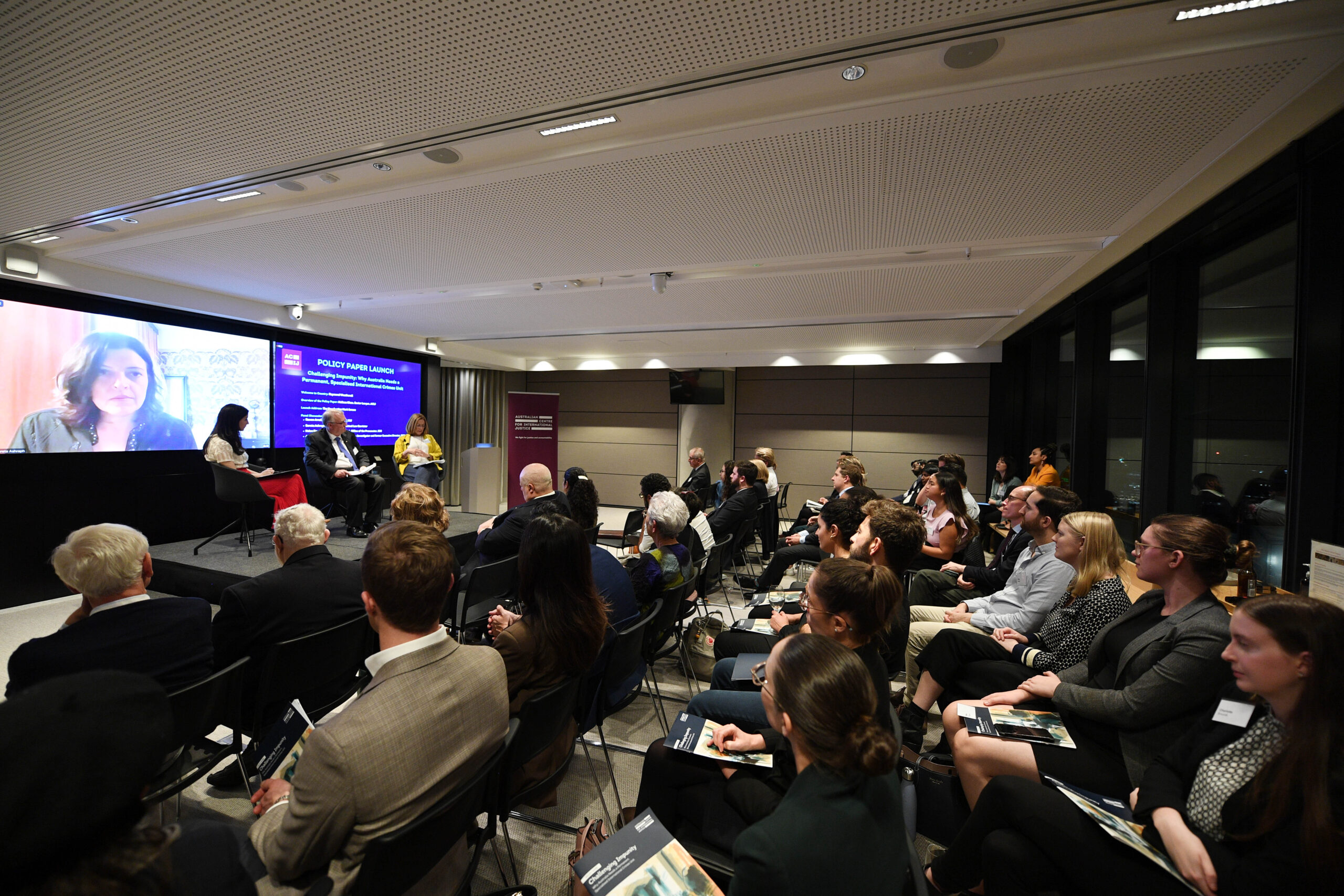
Helen discussed her decades of experience at the International Criminal Court and other international criminal tribunals, noting that the principle of complementarity lies at the heart of the Rome Statute, and is the cornerstone of the International Criminal Court, meaning that the primary responsibility for bringing perpetrators to account for serious international crimes lies with national jurisdictions. She spoke on the limited resources and the vast number of cases being considered by the International Criminal Court, meaning that in the Office of the Prosecutor’s latest strategic plan, the Office is envisaged as a hub for accountability efforts, working with other countries and accountability mechanisms and partners to ensure a coordinated and effective effort towards closing the impunity gap. Helen also spoke on the lessons that domestic courts could learn from the International Criminal Court and other international tribunals, including the multidisciplinary, multicultural and multinational approach to investigations.
Latest on Permanent, Specialised International Crimes Unit
Media Release: Australia is a Safe Haven for Perpetrators of Atrocities and Must Establish a Permanent, Specialised International Crimes Unit
Following revelations of the presence of alleged Rwandan perpetrators of genocide in Australia, ACIJ has reiterated its call for a dedicated, specialised unit be established to more effectively investigate these international crimes.
Letter: Australia should investigate citizens fighting in the IDF
Letter to Minister for Home Affairs, the Attorney-General and the AFP Commissioner, regarding Australian nationals joining the Israel Defense Forces.
Letter: Australia’s support for the Crimes Against Humanity Treaty
The Australian Centre for International Justice has been advocating for Australia’s support of the Crimes Against Humanity Treaty.
Policy Paper: Challenging Impunity: Why Australia Needs a Permanent, Specialised International Crimes Unit
28 September 2023 In a world marked by conflict, unrest and serious human rights abuses, survivor communities and the civil society organisations that represent them continue to seek avenues for accountability and justice. One such avenue is international...
Submission: International Criminal Justice and Victims’ Rights – Missing Pieces in Australia’s Human Rights Framework
In July 2023 ACIJ provided its written submission to the Parliamentary Joint Committee on Human Rights to its Inquiry into Australia’s Human Rights Framework.
Challenging Impunity: Why Australia Needs a Permanent, Specialised International Crimes Unit – Policy Paper Launch – 28 September 2023
Join ACIJ for the launch of our policy paper, ‘Challenging Impunity: Why Australia Needs a Permanent, Specialised International Crimes Unit’. This is a hybrid event that will take place in Sydney on Thursday 28 September 2023 while being streamed concurrently online. Arrival is from 6.00pm for a 6.30pm start (AEST).
Submission: Supporting democracy in the region by addressing impunity
1 June 2023 Submission: Supporting democracy in the region by addressing impunity In December 2022, ACIJ made a written submission to the Foreign Affairs and Aid Subcommittee of the Parliamentary Joint Standing Committee on Foreign Affairs, Defence and Trade to assist...
Letter: Australia’s support for the Mutual Legal Assistance Treaty
Australia’s support for the Mutual Legal Assistance Treaty
Submission: Australia’s obligation to investigate crimes of torture
In November 2022, ACIJ made a submission to the UN Special Rapporteur on Torture on the duty to investigate crimes of torture in national law and practice. Our submission noted institutional shortcomings in Australia’s capacity to investigate torture and other international crimes, and recommended the establishment of a permanent, specialist unit dedicated to the investigation of core international crimes.
The Australian Centre for International Justice fights to hold accountable those responsible for the most serious international crimes. It continues to be an enormous challenge.
We work with survivors of torture, sexual violence, genocide and war to research and develop strategies to fight for justice.
We are Australia’s first specialist legal centre providing strategic advice and representation to people seeking justice and accountability.
We take action against the impunity of those responsible for committing atrocity crimes. We all benefit by supporting communities in Australia and around the world access justice.
We need your support to fight for justice.
Join us to advance international justice in Australia and make a tax-deductible donation to support our work and help us push our projects and litigation.

